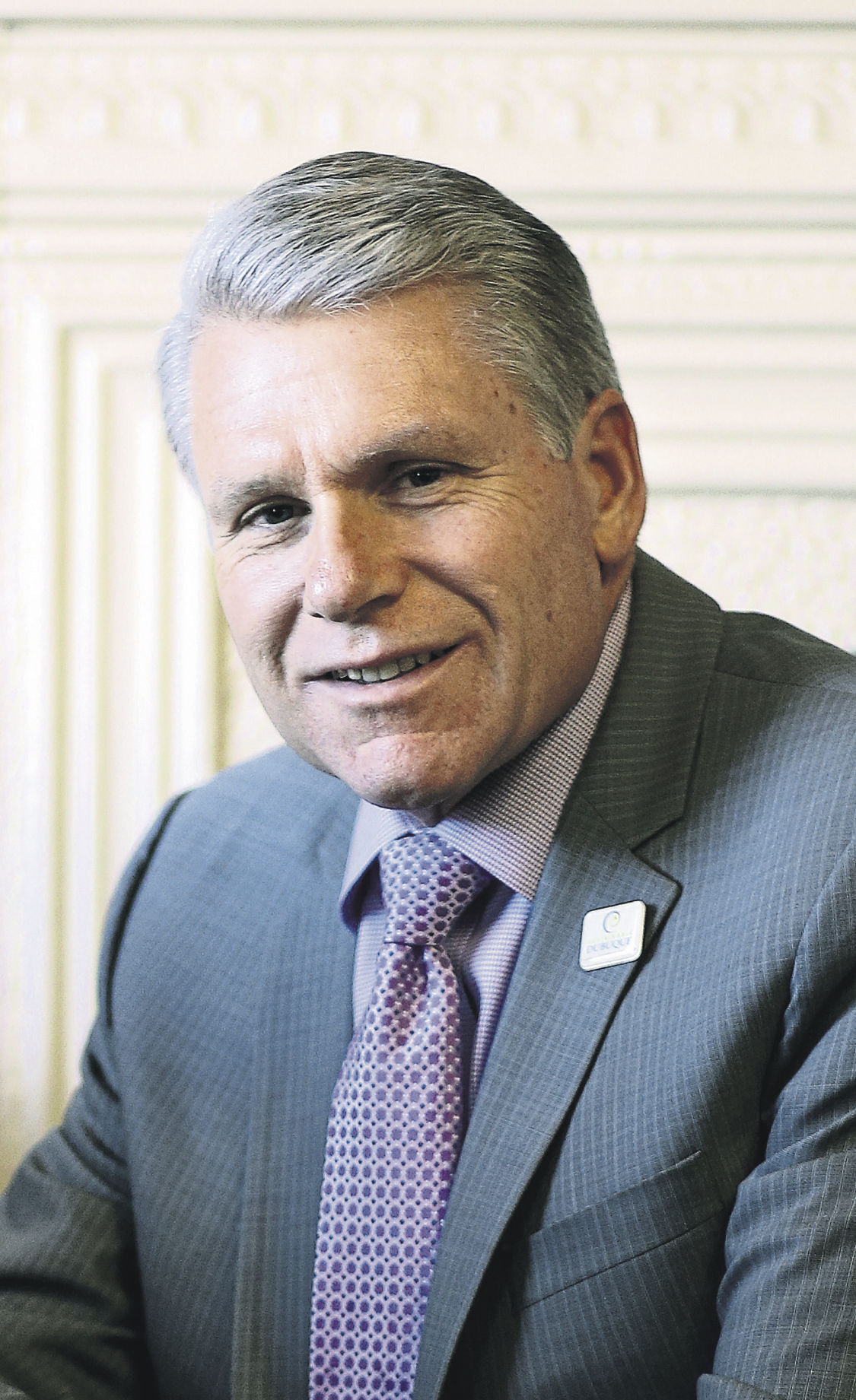Four years ago, when federal lawmakers passed legislation creating Opportunity Zones, the new rules were touted as a mechanism for spurring local economic development in a wide variety of communities.
Local leaders say these lofty aspirations have not been realized.
“Nationally, the vast majority of investment has occurred in the largest metros and places where there was already significant development underway,” said David Lyons, innovations consultant with Greater Dubuque Development Corp. “It is happening in places like New York and Phoenix, and there has not been as much investment in places like Dubuque.”
Opportunity Zones were added to the tax code in late 2017 as part of the Tax Cuts and Jobs Act.
The program provides an enticing deal for investors, who are able to temporarily shield capital gains from taxation while they are within “Qualified Opportunity Funds.” In theory, the concept was going to encourage investments in underdeveloped areas. One’s investment only would be protected from taxation if it supported a project in an “economically distressed area.”
In a letter shared with federal lawmakers, Dubuque City Manager Mike Van Milligen recalled the early optimism that surrounded this program.
“When the Opportunity Zone legislation was first passed in 2017, one of its stated purposes was to elevate the visibility of neighborhoods and deals that investors might not have considered otherwise,” he wrote. “As a small metro in the Midwest that traditionally has not seen a lot of outside investment interest, this sounded like just the ticket.”
Van Milligen sent the letter to Iowa Republicans U.S. Sens. Chuck Grassley and Joni Ernst and U.S. Rep. Ashley Hinson and shared the correspondence with Dubuque City Council members recently.
In the letter, Van Milligen states that there “has been little interest from developers and investors” in relation to Opportunity Zones since the project began.
“As shown by many studies, the Opportunity Zone projects and incentives have flowed disproportionately to large metropolitan areas and disproportionately to real estate development with little or no local job creation,” he said.
A pair of low-income census tracks in Dubuque qualify as Opportunity Zones — one covers a large swath of the city’s North End, while another includes a significant portion of Dubuque’s downtown and riverfront areas.
In his letter, Van Milligen cited just one possible project known to the city that emerged because of Opportunity Zones. He also put forth a pair of ideas that could incent more Opportunity Zone projects in Dubuque.
First, he suggested a requirement that Opportunity Zone funds and investments must include a minimum percentage of projects or dollars in communities with populations of less than 250,000. In addition, he proposed adding a “refundable tax credit” to the incentives available to investors, noting that the emphasis on capital gains only primarily impacts the very wealthy and excludes other investors who hope to support Opportunity Zone projects.
City officials deferred questions to David Lyons, who has worked closely with the city to navigate the complexities of Opportunity Zones.
“We are highly convinced that Dubuque has an excellent environment for investors,” Lyons said. “To help in that process, the city has suggested two pretty straightforward things that give investors a reason to look at smaller communities.”
Lyons acknowledged interest has been relatively low so far.
In October 2019, Merge Urban Development Group proposed the construction of a six-story, $20 million structure that would offer apartment and retail space in the Port of Dubuque, just west of the corporate headquarters for Flexsteel Industries. Initial plans called for the beginning of construction in the summer or fall of 2020, but work still hasn’t started.
In October 2020, a Minnesota-based development company, which was formed specifically to take on projects within Opportunity Zones, disclosed plans to create a 103-room hotel within the Novelty Iron Works Building, 333 E. 10th St. Bob Johnson, co-owner of the building, did not return calls seeking an update on this project.
Reached by the Telegraph Herald, all three federal lawmakers expressed a willingness to work toward improving the Opportunity Zone program.
Grassley noted that he co-introduced legislation in 2019 to bring more transparency to Opportunity Zones.
“Opportunity Zones have the potential to transform economically underdeveloped parts of the country,” he said via email. “Ensuring this program benefits smaller communities and rural areas is critical to its success. I look forward to working with my colleagues on ways to fine-tune the program.”
Brendan Conley, Iowa communications director for Ernst, said via email that she is “willing to work with communities and stakeholders to improve the program” and make sure smaller metro areas can benefit.
Noting that Ernst was “one of the architects of the program,” Conley said Ernst has been pleased to see more than $15 billion raised in qualified opportunity funds by the end of 2020.
Hinson, in an email to the TH, said Opportunity Zones have “made a difference in many communities already.” But she also noted that there is room to improve policies.
Hinson has introduced legislation that would help more communities attain the Opportunity Zone designation. She believes the ideas put forth by Dubuque officials are also worth exploring.
“I think the city raised an important point that I look forward to engaging with them on,” she added.


